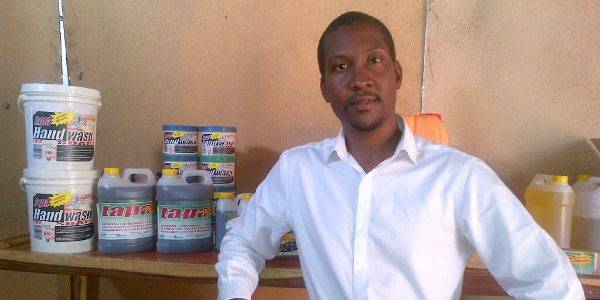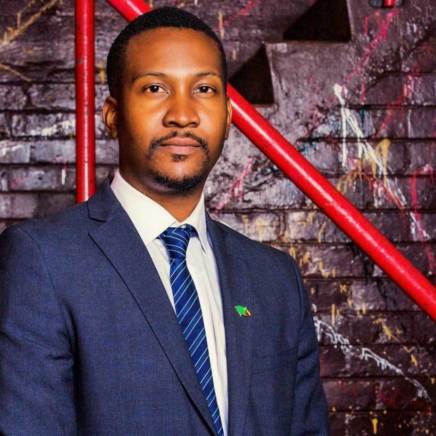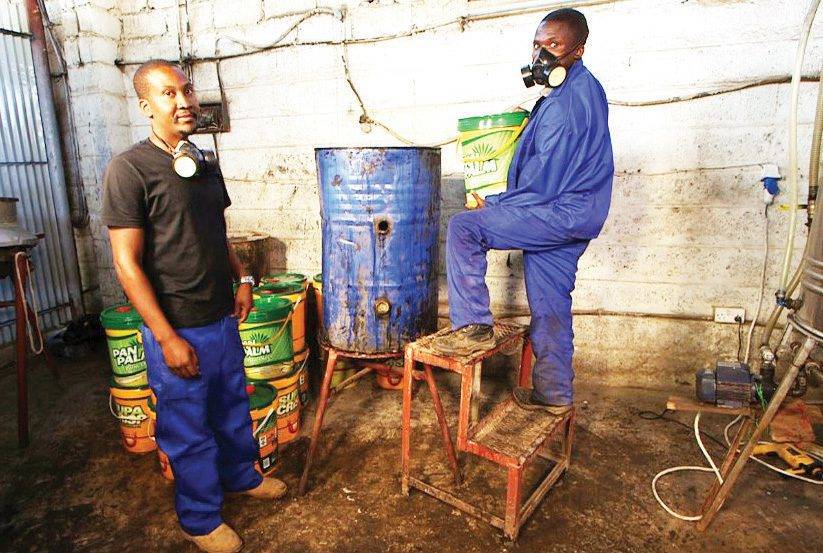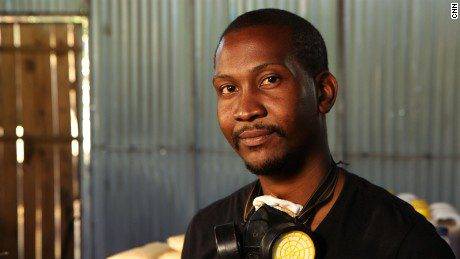His Astronaut Dream Ran Out Of Gas, But Now He’s Fuelling His Country With Biogas – The Mutoba Story

Despite facing setbacks in his dream of becoming an astronaut, Mutoba Ngoma came upon the idea of ending the energy crisis in his country with bioenergy and he has been pursuing it ever since with significant success.
Mutoba Ngoma was born and raised in Zambia where he experienced first hand the perennial energy crisis troubling most of Africa. Even from his younger days, he always wondered how different life would be if such a problem didn’t exist. He longed for a very different situation.
It was something of an unspoken dream on his part to help his community out of the mire. That, and nailing down a job with NASA as an astronaut, or some sort of space engineer.
A chance encounter with a TV documentary on renewable energy in Brazil after bagging a degree in Aeronautical Engineering in the United Kingdom, piqued his interest and gave him an idea of how to help solve the fuel shortage back home.
In 2009, he founded Tapera Bio Industries Limited – a biofuel company that converts used vegetable oil into fuel – with a two-fold mission to increase the country’s fuel supply sustainability and provide vocational training and stable job opportunities for young people.

Ngoma’s business model is simple. His company processes about 3000 liters of used vegetable oil a month – actually started with 200 litres – for use as motor fuel and sells to a cluster of clients.
And when he was confronted with a lack of enough used vegetable oil for bio-diesel, Ngoma saw it as an opportunity to switch things up and delve into soap making.
“The idea of aking soaps came about as a result of one of our challenges of securing enough raw material for the diesel,” he says. “King Soaps came about as a result of one of our challenges of securing enough raw material for the diesel. We realised as we were waiting for more oil to come about, we could actually be producing something else. And we found that we could actually produce soap from the same oil.”
He reveals further; “So, we just had to clean it a bit more and it’s even cheaper to process than the diesel. We stuck with it because we felt it is also a good income generator.”
Tapera also initiated the supply of raw material – sourced from jatropha seeds which can be used instead of used cooking oil – to other companies in the region looking to produce their own bio-diesel.
Tapera sources the jatropha seeds from local farmers – some 50 tonnes a month from over 2000 small scale farmers signed on to their outgrower programme – for supplies to BioEnergy Resources Limited in Malawi and Copperbelt Energy Corporation in Zambia.
Born in Lusaka, Zambia on January 30, 1985, Ngoma attended Matero Boys Secondary School in Lusaka before going on to complete his secondary school in Nairobi, Kenya, at St Mary’s School.
He proceeded to the United Kingdom to study manufacturing and aircraft engineering before returning home to work with the now-defunct Zambia Airways as an aircraft maintenance planner. All the while, he still had hopes of working for NASA but it didn’t seem very likely given the situation of things at the time.
He was on an assignment in South America when he came across a feature that nudged him towards renewable energy generation – a very timely occurrence given that his career in aviation was winding down given the poor state of affairs at Zambia Airways at the time.

According to Mutoba, the business has partnered with Musika Agricultural Initiatives to set up a small scale farmers outgrower scheme in Zambia’s eastern province where he is also looking to establish a fully-fledged farm-to-fuel biodiesel production site.
This production site will be furnished with the capacity to produce 70,000 litres of vegetable oil per month, as well as a further 200 metric tonnes of biomass briquettes from the agro waste generated from the processing of the jatropha seeds.
Ngoma is a driven man, constantly seeking to do better than the day before, and motivated by storied journies of successful, self-made mentors. In the years since he started Tapera, several doors and opportunities around the world have opened for the 34-year old.
He became a Mandela Washington Fellow in 2014. In 2016, Forbes Africa named him one of the top 30 under-35 most promising entrepreneurs in Africa. The following year, he named by the United Nations as one of the Most Influential People of African Descent.

Ngoma was also invited by the President of the Africa Development Bank (AfDB) for the bank’s annual meeting in 2018 to present a paper on youth participation in the industrialization of Africa based on experience acquired while running Tapera Industries experience in Zambia.
But the visionary entrepreneur is far from done as he still has big plans for Tapera and the future of entrepreneurship in Zambia. Part of his future plans is to acquire lands in Zambia to grow castor beans for oil, and thereby produce biofuels, create jobs for other young people, and help grow the Zambian economy.
It may look like his dream of touching the stars in a spaceship now seems distant, but the efforts of this Zambian entrepreneur is helping his country soar high all the same.